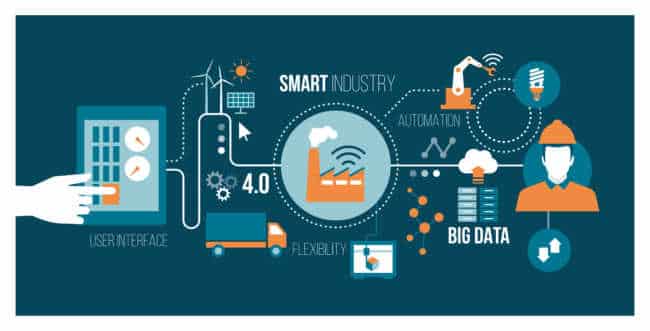By Michael Rivera, PhD
Manufacturers face new challenges with each passing day. Increased customer expectations such as demand for customization and the complexities in the global supply chain have led manufacturers to seek more innovative ways to stay competitive.
The COVID-19 pandemic has also highlighted the need for new processes. Now, businesses are turning to digital transformation to increase efficiency and improve manufacturing and supply chain operations.
At Thinaer, we’ve helped manufacturing companies make seamless digital transformation changes through the Industrial Internet of Things (IIoT). Using a network of sensors, these manufacturers can collect valuable production data and then use cloud-based software to transform this data into key insights about the efficiency of their manufacturing processes.
But there’s more.
Here’s how IIoT solutions can transform your manufacturing and help you capture value.
Product Quality Control
Manufacturers can leverage IoT technologies to monitor the quality of their production processes. IoT solutions can monitor machine conditions, equipment calibration, and other environmental conditions.
Should sensor readings get close to abnormal levels that could lead to a product defect, a quality monitoring system identifies the cause of a problem, alerts management, and suggests a mitigation action. This reduces the production of substandard products.
Improved Safety
Many manufacturing plants have cameras that Industrial IoT imagery software can connect to. IoT security systems can identify strange occurrences and patterns in operations or workplace environments.
In addition, wearable sensors that gather information on an employee’s pulse rate, skin temperature, galvanic skin response, and others can spot unusual behavior patterns, protect workers from falls, overexertion, and other injuries, and quickly alert authorities to a safety danger.
Improved Asset Tracking and Management
Thinaer’s sensors improve on RFID tags to make asset tracking in manufacturing plants more accurate. These IoT solutions provide precise real-time data about an enterprise’s assets, inventory locations, and movements.
Studies show that this can free up to 18 hours of monthly working time and remove errors associated with manual data entry methods. These solutions also reduce inventory carrying costs for businesses by 20% to 50%.
Predictive Maintenance
A Deloitte study showed that predictive maintenance based on Industrial IoT solutions will cut factory equipment maintenance costs by 40% and generate $630 billion yearly by 2025.
IoT-based predictive maintenance promotes the effective use of existing assets by predicting machine failures and reducing maintenance issues.
Through continuous equipment condition monitoring, these systems can identify potential manufacturing delays, whether they’re internal or external. As such, the company can address them proactively.
Conclusion
IIoT combines big data, predictive analytics, and machine learning technologies to gain insights from data collected from manufacturing tools, products, and sensors in industries. Manufacturers can use this data to identify inefficiencies, cut costs, and enhance customer support.
Our team of data scientists and engineers, business analysts, and PhDs at Thinaer help manufacturers and production teams leverage IIoT for better quality control, efficient supply chain management, and sustainability. Contact us today.

